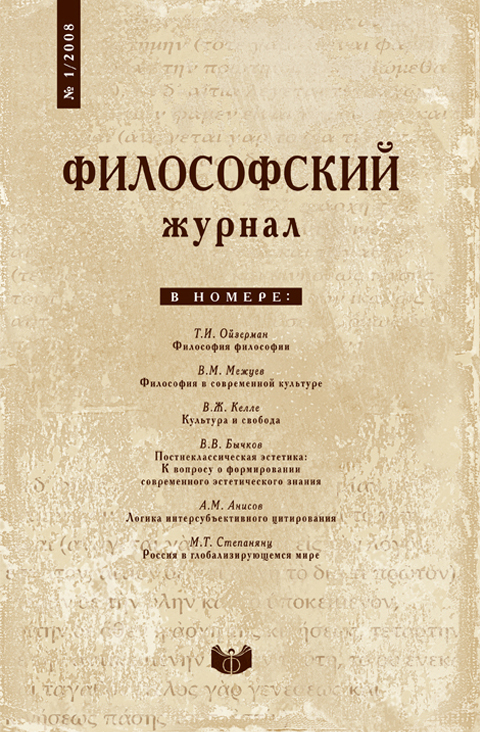Толерантность и универсализм
Ключевые слова:
терпимость, плюрализм, синтез, универсализм, ВолошинАннотация
Понятие толерантности заслуживает гораздо более пристального внимания и глубокого анализа, чем тот, который мы можем встретить в современной литературе, посвященной данному вопросу. И этот анализ должен быть посвящен не только практическим, но и (в первую очередь) теоретическим аспектам толерантности. Опираясь на краткую типологию толерантности, разработанную М. Уолцером, можно существенным образом расширить наше понимание некоторых вопросов, связанных с проблемами дискуссии и диалога, философского и научного плюрализма. Если же принять во внимание связь между толерантностью и универсализмом, когда толерантность выступает в качестве необходимого условия реализации универсальной позиции (что можно видеть на примере кажущейся парадоксальности поведения М.А. Волошина в тяжелые для России годы), а универсальная позиция может быть сформулирована и принята только в качестве метапринципа, то поиск ответа на вопрос о том, как можно терпеть нетерпимое, приобретает новое философское измерение, позволяющее нетривиальным образом подходить к решению многих проблем, выдвигаемых перед нами современностью.






